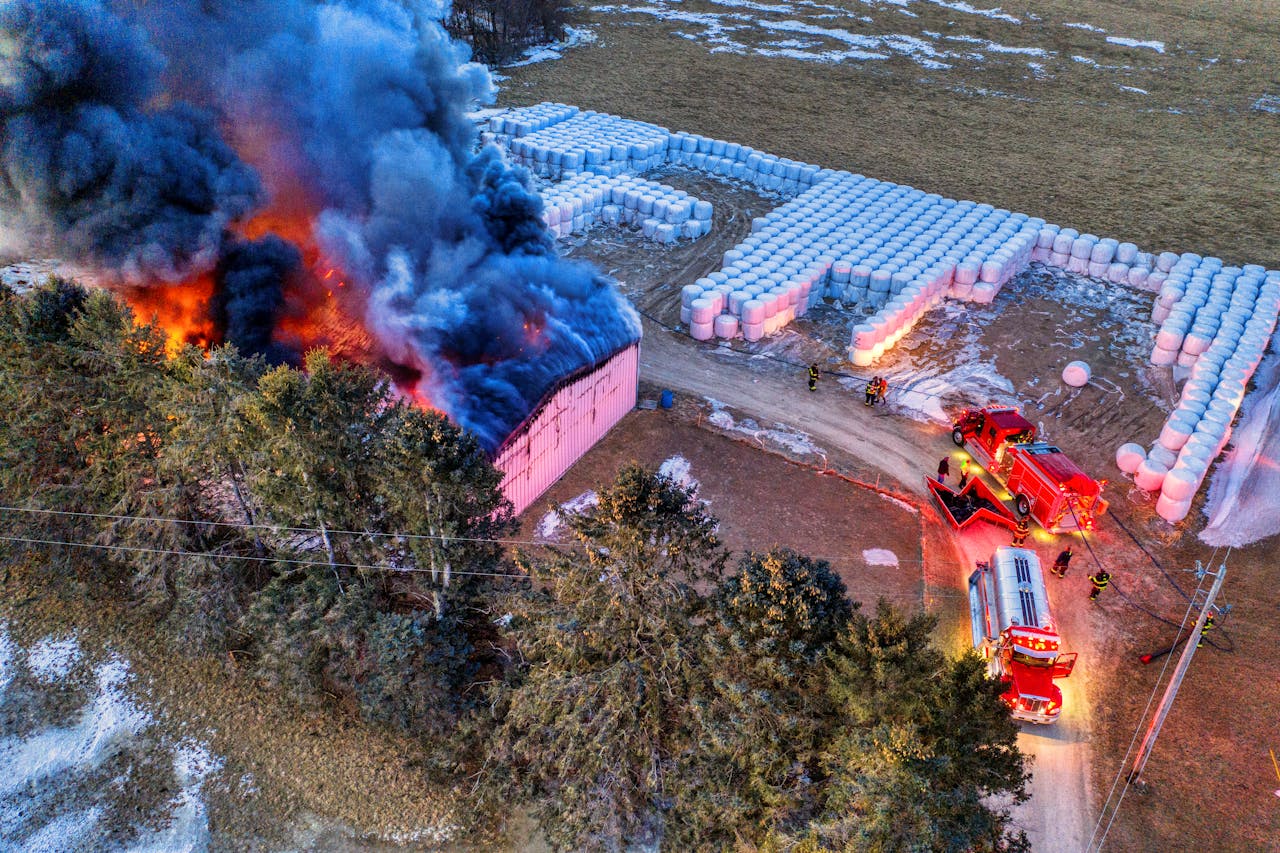
The Importance of Immediate Incident Documentation in Workers' Compensation Claims

Key Takeaways:
-
Importance of Immediate Reporting: Promptly reporting workplace injuries is crucial for initiating the claims process, gathering accurate information, and ensuring compliance with legal requirements.
-
Accurate Documentation: Detailed documentation, including incident reports, medical evaluations, and witness statements, is essential for supporting claims and minimizing disputes.
-
Role of Workplace Injury Claim Services: Professional services provide expert guidance, streamline the claims process, and ensure compliance with regulations, reducing the burden on businesses.
-
Preventing Disputes: Thorough documentation, clear communication, and proactive engagement with medical providers and claims adjusters help minimize the risk of disputes.
-
Partnering with Veritas: Veritas provides comprehensive support, including expert guidance, tailored solutions, and efficient claim management to help businesses navigate the complexities of workers' compensation claims.
Workers' compensation claims rely heavily on accurate and timely documentation of workplace incidents. Without proper records, resolving disputes and ensuring fair outcomes can become a challenge.
So, what are the actions to be taken when an injury occurs in the workplace? Prompt documentation is a critical first step that lays the foundation for successful claim resolution and minimizes the risk of workplace compensation disputes.
This article highlights the significance of immediate documentation, provides actionable steps, and explains how workplace injury claim services and professional claims adjusters can streamline the process.
What Are the Actions to Be Taken When an Injury Occurs in the Workplace?
When a workplace injury happens, acting quickly and efficiently is crucial. Immediate actions not only protect the employee’s rights but also ensure compliance with legal and procedural requirements.
Steps to take when an injury occurs:
-
Ensure safety first: Address immediate hazards and provide first aid to the injured employee.
-
Notify supervisors: Inform the appropriate personnel about the incident as soon as possible.
-
Document the incident: Record details such as the time, location, nature of the injury, and any witnesses present.
-
File an initial report: Use standardized forms to ensure all essential information is captured.
-
Initiate the claims process: Submit the incident report to HR or the insurance provider to begin the claim.
Following these actions ensures that all necessary information is preserved, preventing delays or disputes during the claims process.
Why Immediate Documentation Matters in Workers' Compensation Claims
Immediate documentation serves as the backbone of workplace injury claims explained clearly and thoroughly. When done promptly, it:
-
Establishes accuracy: Fresh details are less likely to be forgotten or misrepresented.
-
Strengthens the claim: Clear, detailed records make it easier to validate the incident and its impact.
-
Supports compliance: Ensures adherence to state-mandated reporting requirements.
-
Reduces disputes: Minimizes the chances of workplace compensation disputes by providing clear evidence.
Acting quickly sets the stage for a smoother and more efficient claims process.
5 Key Elements to Document After a Workplace Injury
Accurate and comprehensive documentation is essential to support workers’ compensation claims.
What to include in your documentation:
-
Details of the incident: Date, time, location, and description of events leading to the injury.
-
Employee’s condition: Specifics about the injury, affected body parts, and immediate symptoms.
-
Witness statements: Accounts from colleagues who saw the incident occur.
-
Photographic evidence: Images of the scene, equipment involved, or hazards contributing to the injury.
-
Medical evaluations: Reports from healthcare providers detailing the injury and recommended treatments.
This thorough approach ensures that all necessary information is available for claim review and resolution.
How Workplace Injury Claims Services Simplify Compliance
Navigating the workers' compensation claims process can be overwhelming, especially when dealing with regulatory requirements.
Professional workplace injury claim services are invaluable in managing these complexities.
How these services simplify compliance:
-
Expert guidance: Professionals ensure adherence to legal requirements and deadlines.
-
Comprehensive recordkeeping: They maintain all documentation in an organized and accessible manner.
-
Continuous updates: Regular communication keeps employers and employees informed throughout the process.
-
Dispute mitigation: Proactive involvement helps prevent workplace compensation disputes by addressing issues early.
Using these services reduces administrative burdens and ensures that claims are handled accurately and efficiently.
The Role of Workplace Injury Claim Services
Professional workplace injury claim services play a vital role in managing and resolving claims efficiently.
These services handle the complexities of documentation, communication, and compliance, ensuring a fair outcome for all parties.
How workplace injury claim services help:
-
Expert documentation support: Ensures all required information is complete and accurate.
-
Claims processing: Facilitates timely filing and submission to insurance providers.
-
Dispute resolution: Addresses and mitigates workplace compensation disputes through mediation or negotiation.
Partnering with experienced claim services simplifies the process and improves the likelihood of a successful resolution.
Claims Adjuster Responsibilities in Workers' Compensation Cases
A claims adjuster plays a central role in the workers’ compensation process, ensuring claims are handled professionally and efficiently.
Key responsibilities include:
-
Evaluating documentation: Reviewing incident reports, medical records, and other evidence to validate the claim.
-
Determining liability and compensability: Assessing whether the incident qualifies for compensation based on company policies and state regulations.
-
Communicating with stakeholders: Acting as a liaison between the injured employee, employer, and insurer.
-
Facilitating resolutions: Addressing disputes and ensuring fair settlements for valid claims.
Understanding claims adjuster responsibilities highlights the importance of having detailed and timely documentation.
Avoid Workplace Compensation Disputes Through Proper Documentation
Disputes can arise when details are missing, unclear, or inconsistent. Proper documentation reduces these risks significantly.
5 Tips for avoiding disputes:
-
Standardize forms: Use consistent templates to ensure all incidents are reported in the same format.
-
Train employees: Educate staff on what are the actions to be taken when an injury occurs in the workplace.
-
Review regularly: Conduct audits of incident reports to identify gaps or recurring issues.
-
Engage professionals: Work with workplace injury claim services to strengthen documentation and claim submissions.
Taking these steps helps create a robust system that minimizes disputes and supports fair outcomes.
The Value of Immediate Documentation
When a workplace injury occurs, what are the actions to be taken? Immediate documentation is the most important step in ensuring a successful claim resolution.
By capturing accurate details, involving workplace injury claim services, and understanding claims adjuster responsibilities, businesses can protect both their employees and their operations.
Proper documentation prevents disputes, supports compliance, and paves the way for fair and timely compensation.
Protect Your Business with Veritas’s Workers’ Compensation Solutions
Do you need support in managing workplace injury claims? Veritas provides comprehensive services tailored to meet your needs, from expert documentation to resolution.
Our team specializes in resolving workplace compensation disputes and guiding businesses through the complexities of the claims process. With Veritas, you can ensure timely reporting, accurate documentation, and fair outcomes for all parties involved.
For expert assistance in claims management, trucking claims appraisal, and customized solutions for your business, contact Veritas today at 888-837-1199 and take the first step toward faster, better claims outcomes.

